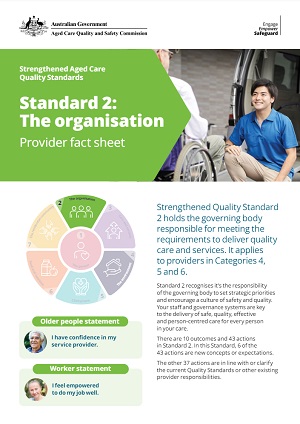This video explains the process of becoming a registered provider from 1 July 2025, when the new Aged Care Act starts. It also includes what to expect when renewing your registration.
This video refers to several products that are coming soon to our website. These include registration forms and registration guidance.

This video explains how registered providers can vary, suspend or revoke their registration from 1 July when the new Aged Care Act starts. It also explains how we may make changes to your registration.
This video refers to several products that are coming soon to our website. These include registration forms and registration guidance.

If you are an older person from a Culturally and Linguistically Diverse (CALD) background, these resources will help you to understand your rights to quality safe aged care and how it is changing for the better.

If you are an older person from a Culturally and Linguistically Diverse (CALD) background, these resources will help you to understand your rights to quality safe aged care and how it is changing for the better.

If you are an older person from a Culturally and Linguistically Diverse (CALD) background, these resources will help you to understand your rights to quality safe aged care and how it is changing for the better.

If you are an older person from a Culturally and Linguistically Diverse (CALD) background, these resources will help you to understand your rights to quality safe aged care and how it is changing for the better.

This plan gives an overview of the resources the Commission will publish to help the Aged Care Sector prepare for the new Aged Care Act.
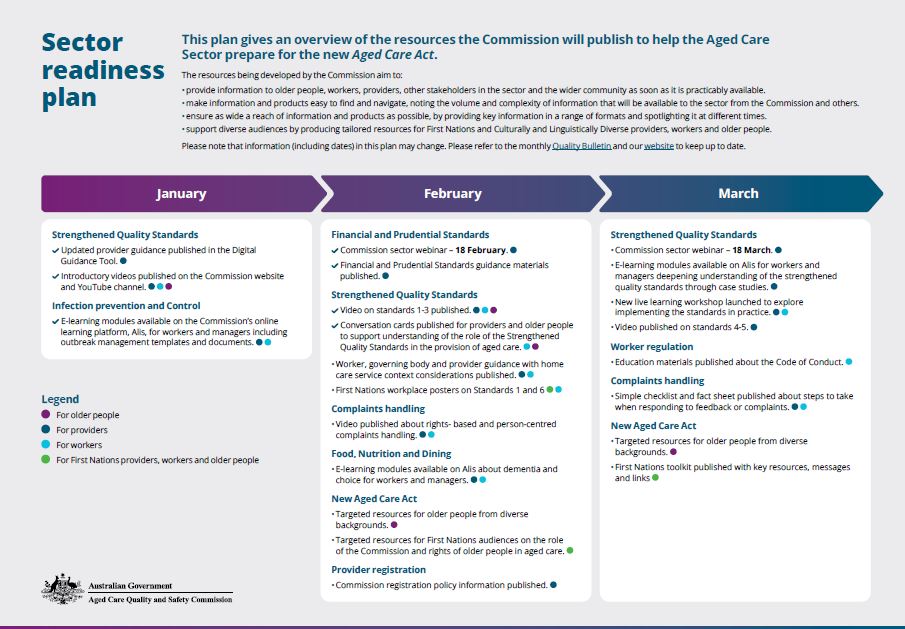
This resource is for aged care workers and provides an overview of how we regulate the aged care sector.
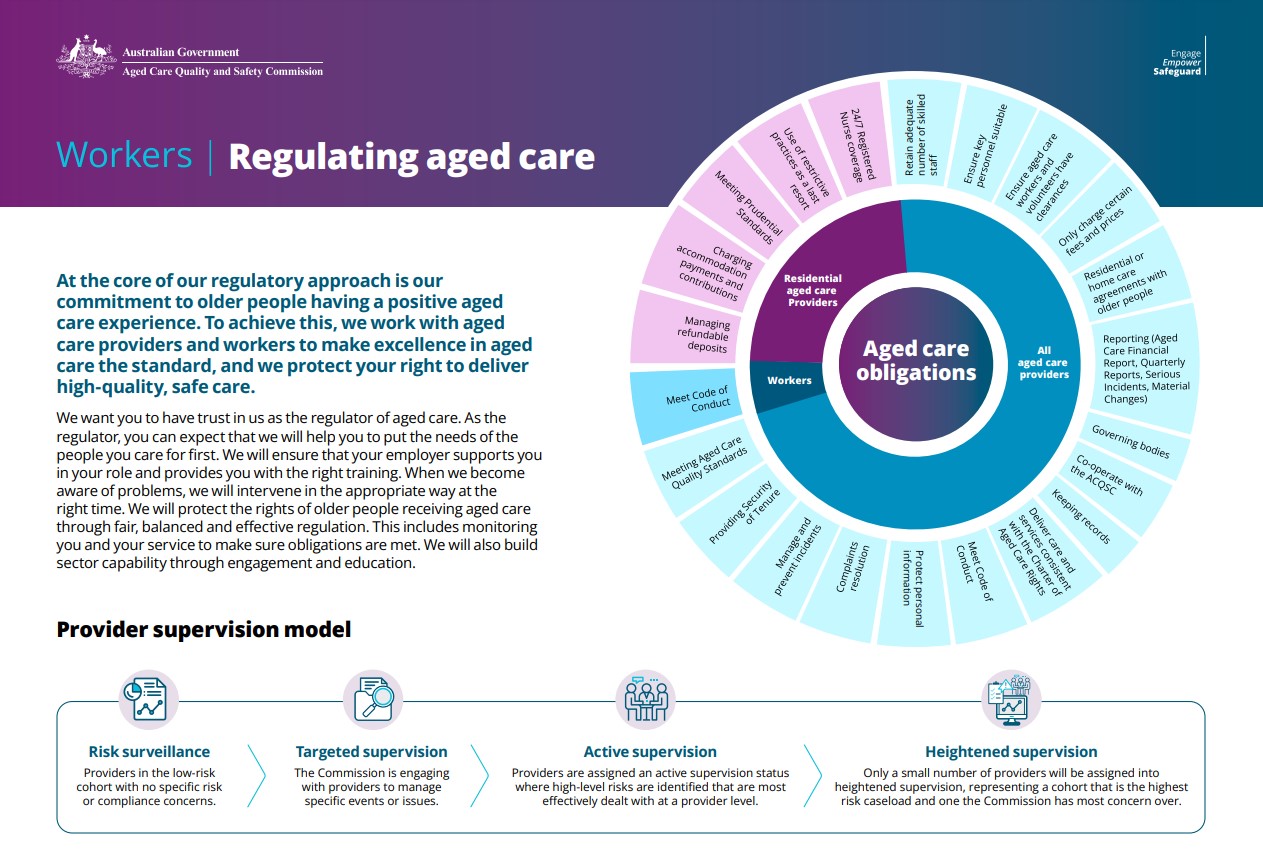
This resource is for older people and provides an overview of how we regulate the aged care sector.
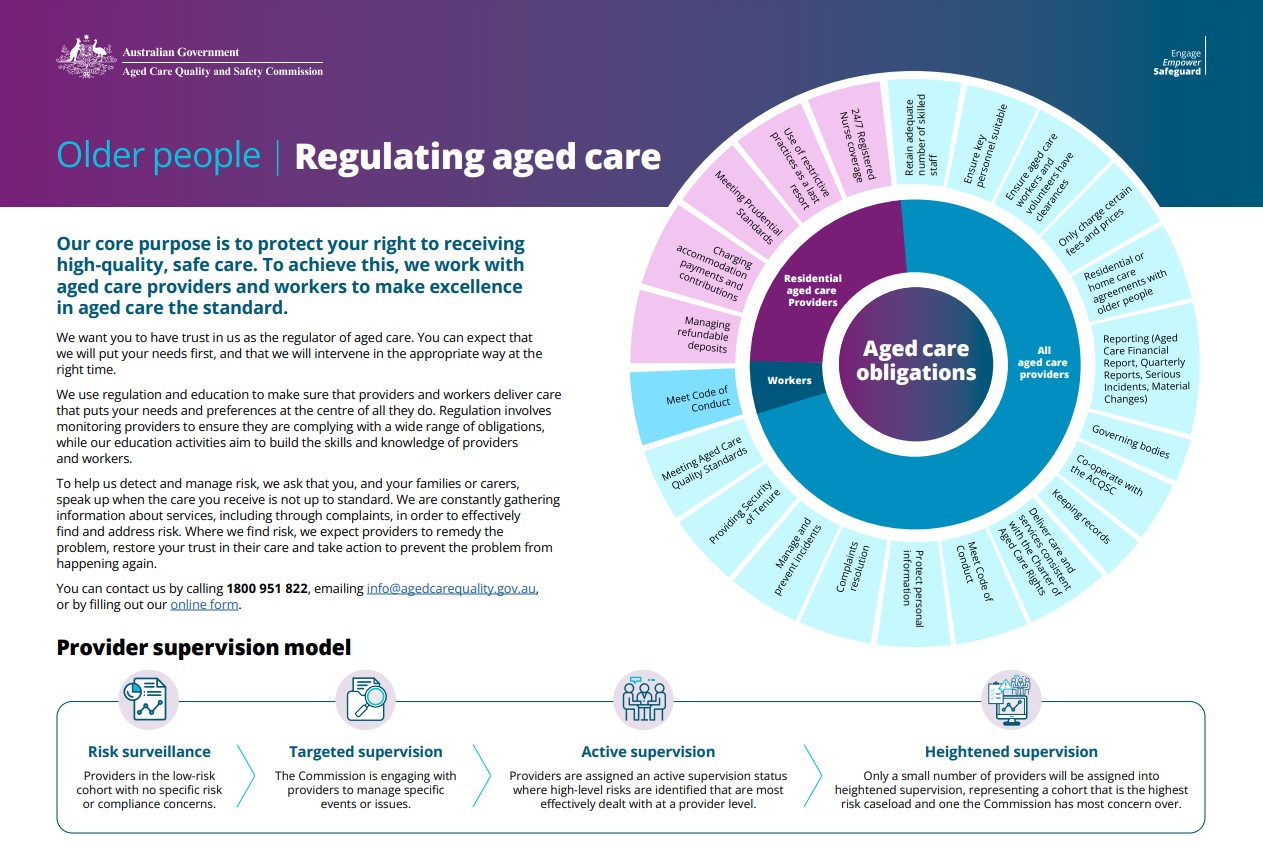
This resource is for aged care providers and provides an overview of how we regulate the aged care sector.
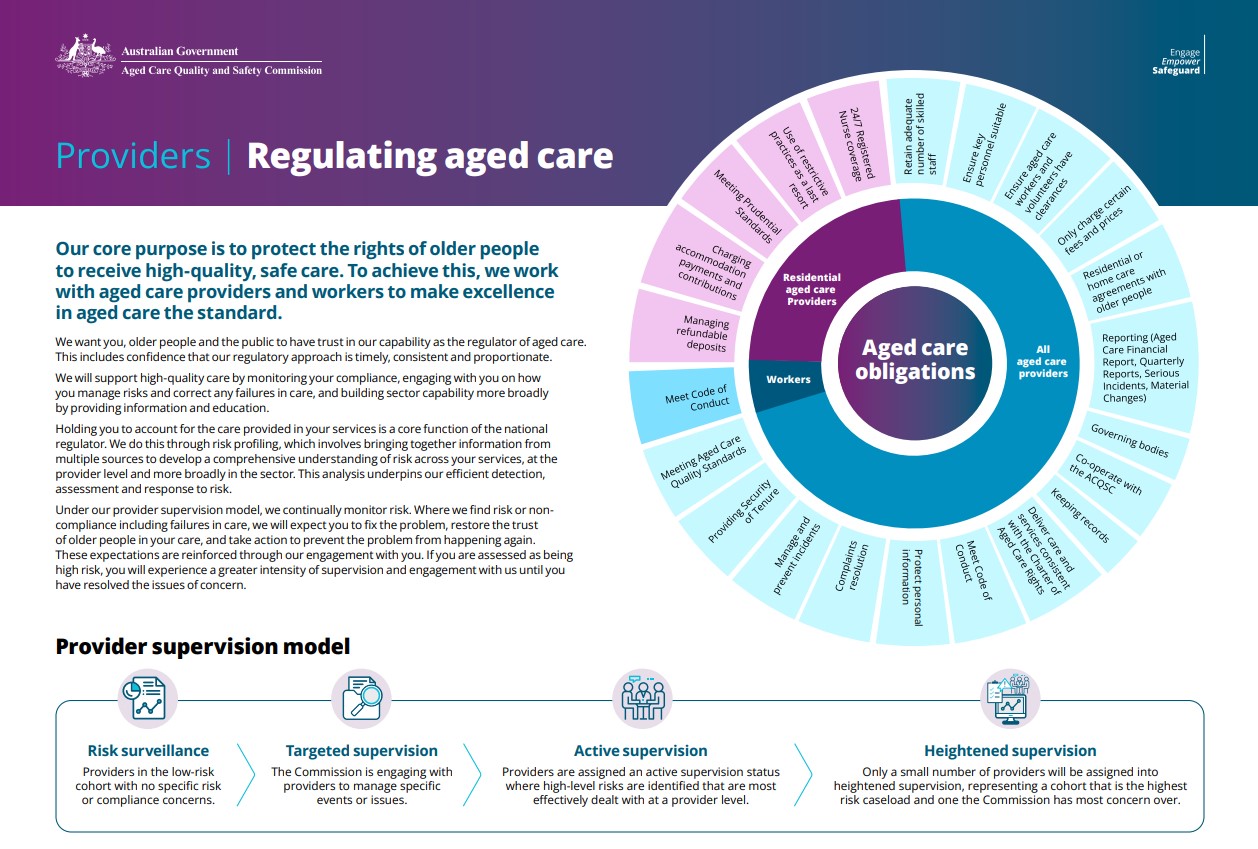
Our Regulatory Strategy sets out how the Commission will deliver on our goals and commitments. This resource may refer to information that will be updated from 1 July 2025 to align with the new Aged Care Act and Quality Standards.
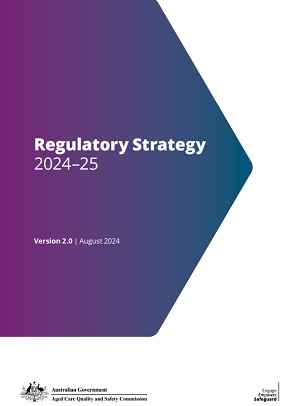
In the lead up to the conference, we hosted a day of pre-conference workshops focused on best-practice approaches to delivering aged care.
The 9 workshops were an opportunity for providers to come together for an informal conversation with Commission executives and peers on a range of topics.

Use this checklist to ensure you allocate time, at least annually, to review the procedures you have in place to ensure you are meeting your provider governance obligations.
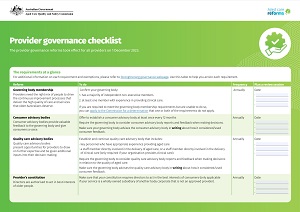
Use this discussion guide in consumer advisory body meetings to help start conversations and encourage ideas on important topics.

To Dip or Not to Dip (TDONTD) is a quality improvement intervention successfully implemented in UK and Australian aged care homes to improve UTI assessment and antibiotic prescribing appropriateness.
This implementation guide has been drawn from the experiences of homes and champions who have implemented TDONTD, along with feedback from aged care nurses and personal care assistants who have used TDONTD resources.

This quick survey is a reflection tool on urine dipstick practice in your facility.
Is there room for improvement?
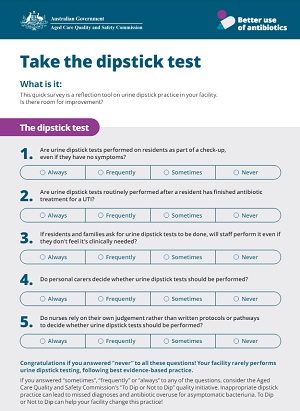
This huddle tool poster provides guidance on appropriate use of urine dipstick tests in older adults. It explains that asymptomatic bacteriuria (ASB) is common and not harmful, but that unnecessary antibiotic treatment can be. It suggests confirming urinary tract infections (UTIs) through clinical symptoms rather than dipstick results.
This resource may refer to information that will be updated from 1 July 2025 to align with the new Aged Care Act and Quality Standards.
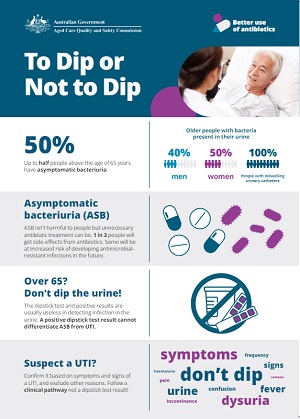
This visual abstract presents outcomes from a quality improvement project aimed at reducing low-value urine dipstick testing in aged care services. It included nurse education, implementing clinical pathways for UTI identification, and evaluating urinalysis practices and antibiotic prescribing. The findings demonstrate improved antibiotic prescribing appropriateness for UTIs over a 6-month follow-up period.
This resource may refer to information that will be updated from 1 July 2025 to align with the new Aged Care Act and Quality Standards.
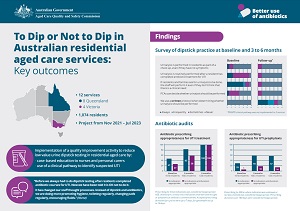
We have released a suite of fact sheets to help providers, aged care workers, and other stakeholders understand the new strengthened Quality Standards and their obligations in meeting them .
The strengthened Quality Standards will come into effect in line with the commencement of the new Aged Care Act.
Strengthened Quality Standard 1 underpins the way providers and staff should treat older people. It explains how important it is to understand that each older person is unique and has a different life story.
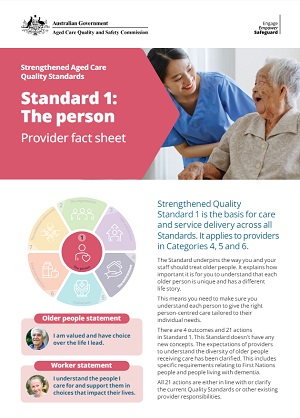
We have released a suite of fact sheets to help providers, aged care workers, and other stakeholders understand the new strengthened Quality Standards and their obligations in meeting them .
The strengthened Quality Standards will come into effect in line with the commencement of the new Aged Care Act.
